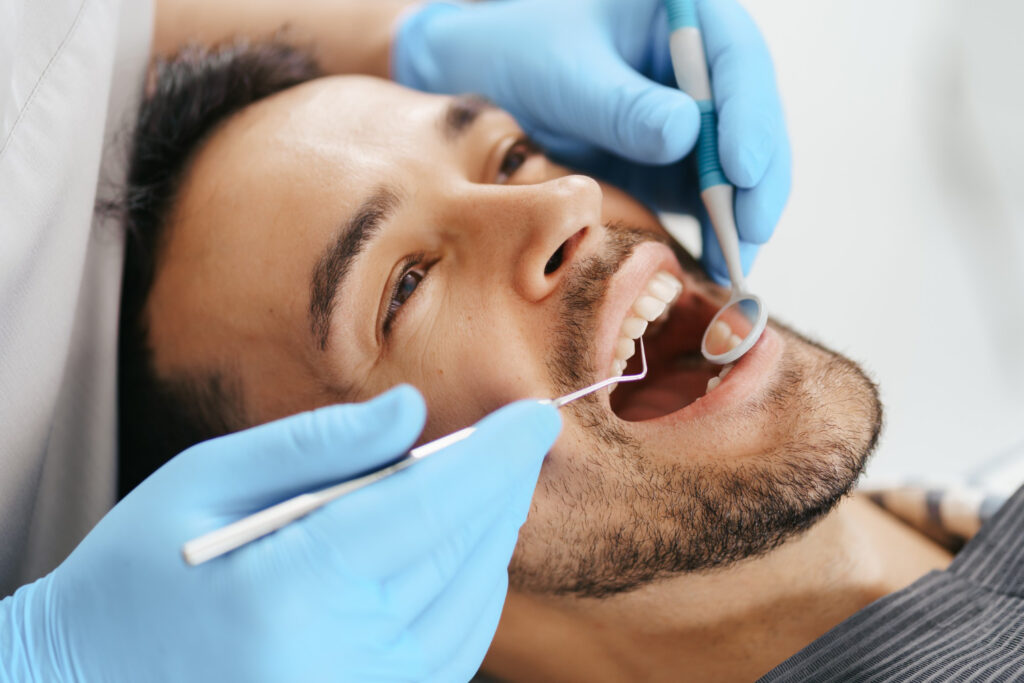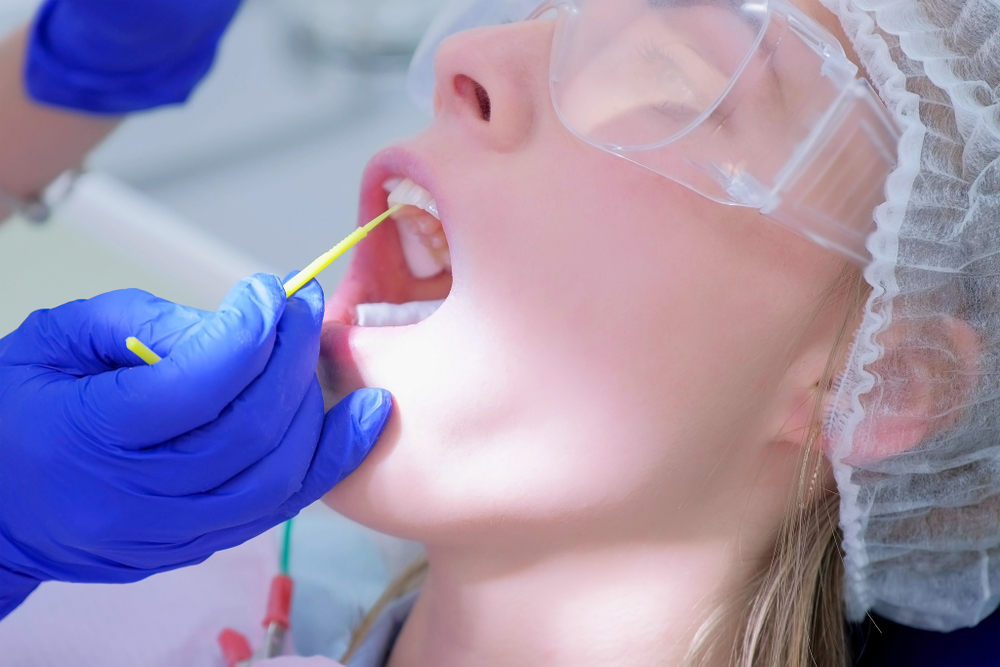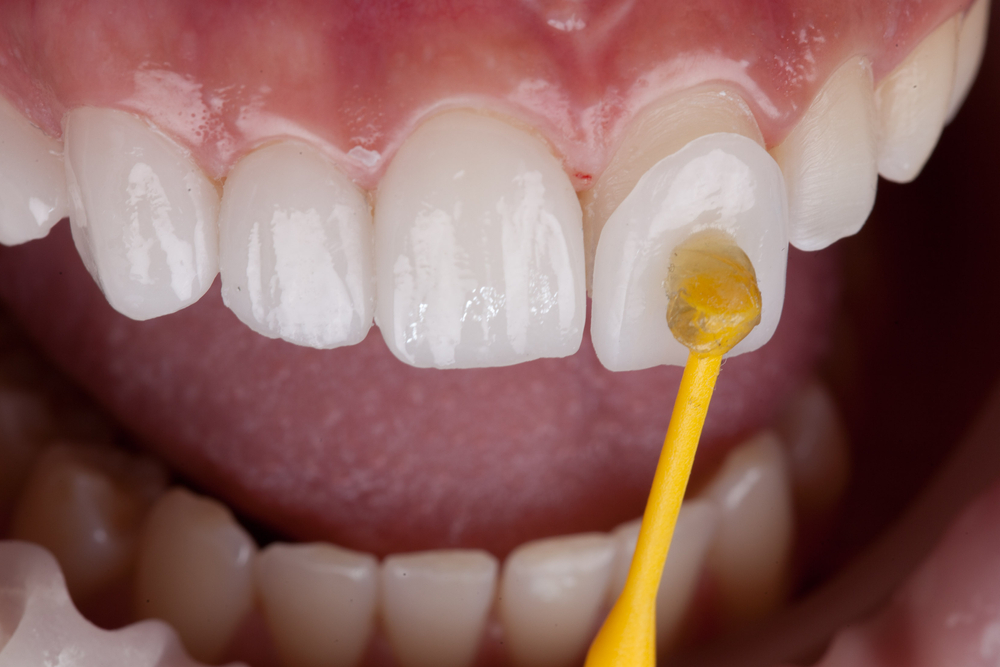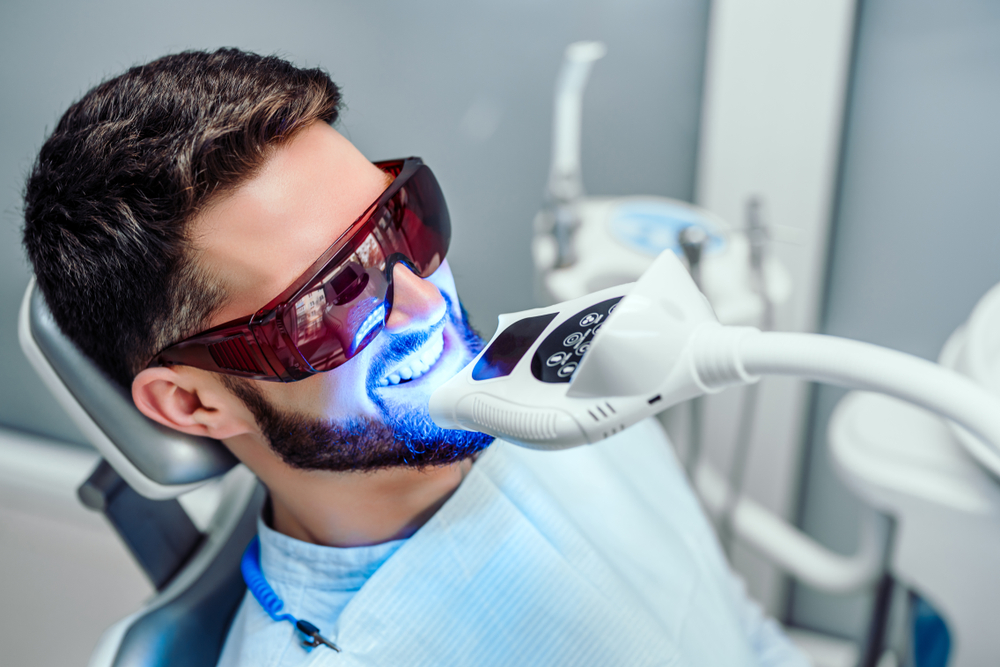A smile is often the first thing we notice about someone. It’s a universal gesture that transcends language barriers. But beyond its social significance, a healthy smile plays a crucial role in our overall health. Our teeth do more than just help us chew our food or pronounce words clearly; they’re indicators of our body’s health.
The importance of maintaining oral health
Oral health is like a window into the overall health of our bodies. Problems in our mouth can affect the rest of our body. Think of your mouth as a gateway: harmful bacteria from untreated dental diseases can spread and lead to other health issues, like heart disease or diabetes. It’s essential to care for your teeth, not just for a bright smile but for a healthier you.
How caring for your teeth impacts your overall well-being
Caring for our teeth means fewer cavities, lesser gum diseases, and reduced chances of tooth loss. A healthier mouth can lead to better digestion, better nutrition, and even better self-esteem. When we smile without hesitation, it boosts our confidence and mental health, creating a positive ripple effect in our lives.
Brushing Basics: More Than Just Scrubbing

We’ve all been taught the importance of brushing our teeth, but are we doing it correctly? Brushing seems simple enough, but small changes can make a big difference in maintaining optimal dental health.
Choosing the right toothbrush
Not all toothbrushes are made equal. Choose one with soft bristles, as hard bristles can wear down tooth enamel and damage gums. The size and shape of the brush should fit comfortably in your mouth, allowing you to reach all areas with ease. Many dentists, including Dr. Dawson and Dr. Turke, recommend electric toothbrushes for their efficiency, but a manual one can be just as effective when used correctly.
Proper brushing techniques for optimal cleaning
- Hold at an Angle: Position your brush at a 45-degree angle to the gumline.
- Short, Gentle Strokes: Use short, gentle back-and-forth strokes, focusing on the outer, inner, and chewing surfaces of every tooth.
- Don’t Forget the Tongue: Gently brush your tongue to remove bacteria and freshen breath.
- Duration Matters: Aim for at least 2 minutes, twice a day. This ensures you give ample time to clean every part of your mouth effectively.
Remember, it’s not just about brushing, but brushing right! Combining the correct technique with the right toothbrush can work wonders in your daily dental care regimen.
Flossing: The Unsung Hero of Dental Care

While brushing gets most of the limelight, flossing quietly does its essential job, reaching those spots our toothbrushes just can’t touch. Neglecting to floss is like washing only 70% of your body and skipping the rest – you wouldn’t do that, would you?
Why flossing is as vital as brushing.
Between our teeth are tiny spaces that a toothbrush can’t adequately clean. These spaces can trap food particles and breed bacteria, leading to plaque buildup, cavities, and gum disease. Flossing removes this trapped food and the plaque buildup, preventing potential dental issues.
Effective flossing techniques to maximize dental cleanliness.
- Get a Good Grip: Take about 18 inches of floss, winding most of it around one of your middle fingers. Wind the remaining floss around the same finger of the opposite hand. This finger will collect the floss as it becomes dirty.
- Guide with Care: Using your thumbs and forefingers, gently slide the floss between your teeth, following the curves of each tooth.
- Glide and Slide: Gently rub the floss up and down against the side of each tooth, ensuring you go beneath the gumline. Avoid snapping or forcing the floss to prevent injuring delicate gum tissues.
- Repeat for All Teeth: Use a clean section of floss for each space. Don’t forget the back of your last tooth.
Dietary Decisions: Foods that Fortify or Foe Your Teeth

We often hear the saying, “You are what you eat.” This couldn’t be more accurate, especially when it comes to dental health. Our dietary choices directly affect our teeth and gums, influencing their strength and health.
Nutrient-rich foods that strengthen dental health.
- Cheese, Milk, and Yogurt: These dairy products are high in calcium and protein, vital for strengthening teeth.
- Leafy Greens: Packed with vitamins and minerals, greens like spinach and kale promote oral health.
- Crunchy Veggies and Fruits: Think apples, carrots, and celery. These foods stimulate saliva production, which washes away harmful acids and food particles.
- Almonds: Rich in protein and calcium but low in sugar, almonds are a teeth-friendly snack.
Foods and drinks to consume in moderation.
- Sugary Treats: Bacteria in our mouth feast on leftover sugar, producing acids that erode tooth enamel. Candies, especially the sticky or chewy ones, are culprits.
- Carbonated Drinks: These can be acidic and are often loaded with sugar. Over time, they can wear down tooth enamel.
- Citrus Fruits: While packed with vitamins, citrus fruits can also be acidic. This doesn’t mean avoiding them but rather consuming them in moderation and rinsing your mouth afterward.
- Coffee and Tea: These can stain teeth over time. If consumed frequently, consider drinking water alongside to rinse away potential stains.
Ultimately, it’s about balance. Including teeth-strengthening foods in your diet and being mindful of those that can cause harm will put you on the path to lasting oral health.
Regular Dental Check-ups: Why They Matter

Dental check-ups are more than just a routine; they’re an essential part of ensuring our teeth and gums stay in top-notch condition. Think of them as maintenance checks for your car: you wouldn’t skip those, right? Your teeth deserve the same diligence.
The significance of professional cleanings.
- Deep Cleaning: No matter how diligent we are with our brushing and flossing, there will always be hard-to-reach areas. A professional cleaning ensures that every nook and cranny of our mouths gets attention, reducing the risk of cavities and gum disease.
- Tartar Removal: Plaque that’s not removed can harden into tartar, which can lead to gum diseases. Unlike plaque, tartar can’t be removed with regular brushing. Only a dental professional can effectively remove it.
Early detection of dental issues with regular visits.
- Catching Cavities: Regular dental exams can catch cavities before they become severe, potentially saving you from more extensive treatments later on.
- Checking for More than Cavities: Dentists also look for signs of gum disease, oral cancer, and other potential issues that might not present obvious symptoms. Early detection means earlier treatment and often better outcomes.
The Role of Fluoride: Nature’s Cavity Fighter

Once the stuff of toothpaste commercials, fluoride has been the superhero of dental health for decades. But why is it hailed as such a game-changer?
Understanding fluoride’s benefits.
- Strengthening Enamel: Fluoride can make teeth more resistant to acid attacks from bacteria in the mouth. This helps in reducing the risk of cavities.
- Repairing Early Decay: Before cavities fully form, fluoride can work to repair the early decay stages by remineralizing areas where acid has started to erode the tooth enamel.
Sources of fluoride and how it protects teeth.
- Toothpaste and Mouthwashes: Most toothpastes available in the market contain fluoride. Using them daily is the easiest way to ensure your teeth benefit from it. Some mouthwashes also contain fluoride for added protection.
- Drinking Water: Many municipalities add a controlled amount of fluoride to the public water supply to help reduce tooth decay in the community. If you’re unsure about your local water’s fluoride content, you can often find this information through your local water provider.
- Professional Treatments: For those needing extra fluoride, dentists, including professionals like Dr. Dawson and Dr. Turke, can provide topical fluoride treatments that offer a higher concentration than over-the-counter or prescription toothpaste or mouthwashes.
With its potent benefits, it’s clear why fluoride is considered nature’s cavity fighter. By incorporating it into our daily routine and through regular dental visits, we can ensure our teeth remain strong and healthy.
From Childhood to Golden Years: Tailored Tips for Every Age
Our teeth are with us from the first gummy baby smile to our seasoned grins. As we grow, so do our dental needs. Being aware of how these needs change over time can set the stage for a lifetime of great oral health.
Dental care essentials for kids, adults, and seniors.
- For Kids: The foundation of oral health starts young. Ensure kids brush twice daily with fluoride toothpaste, limit sugary snacks, and drink fluoridated water. Regular dental visits should start as soon as the first tooth appears, ideally by their first birthday.
- For Adults: Adulthood can come with a set of unique challenges: from the possibility of gum diseases to the considerations of pregnancy on oral health. Continue with twice-daily brushing, daily flossing, regular dental check-ups, and consider using mouthwash for added protection.
- For Seniors: Aging can bring about dental issues like dry mouth, wear and tear on teeth, and even loss of teeth. It’s vital to continue regular dental practices, but also to pay attention to specific issues like caring for dentures or addressing the root causes of dry mouth.
Addressing unique dental challenges at different life stages.
- Teething and Baby Bottle Tooth Decay in Infants: Early childhood cavities can form when babies are put to bed with bottles. It’s essential to transition from bottles early and monitor for signs of tooth decay.
- Braces and Wisdom Teeth in Teens: Orthodontic work often starts in teen years, requiring special oral care routines. Wisdom teeth can also emerge during this time, sometimes necessitating removal.
- Gum Disease and Tooth Loss in Adults and Seniors: Regular check-ups can help identify gum disease early. For those who experience tooth loss, options like implants, bridges, or dentures can help restore the function and look of natural teeth.
Smile Science Dental Spa: Your Partner in Lifelong Oral Health
Dental health isn’t just about treating problems as they arise; it’s about prevention, education, and forming lasting partnerships with professionals who care.
How Dr. Dawson and Dr. Turke champion comprehensive dental care.
Both Dr. Dawson and Dr. Turke understand the evolving needs of their patients. With years of experience, they’ve honed their skills not just in treating dental issues but in educating patients, ensuring everyone understands the why and how of dental care, setting them up for a lifetime of healthy habits.
Why Glendale, AZ residents trust Smile Science Dental Spa for their oral health journey.
Glendale residents have a myriad of choices when it comes to dental care, but many choose Smile Science Dental Spa time and time again. Why? Because it’s not just about the state-of-the-art equipment or the comprehensive range of services. It’s about the trust and personal care Dr. Dawson, Dr. Turke, and their team provide. From the first baby tooth to dentures and beyond, Smile Science Dental Spa is the trusted partner in the lifelong journey of oral health.
Further Reading
- Taking Care of Your Teeth and Mouth
- 11 Ways to Keep Your Teeth Healthy
- Caring for my teeth and gums
- Take care of your teeth and gums






